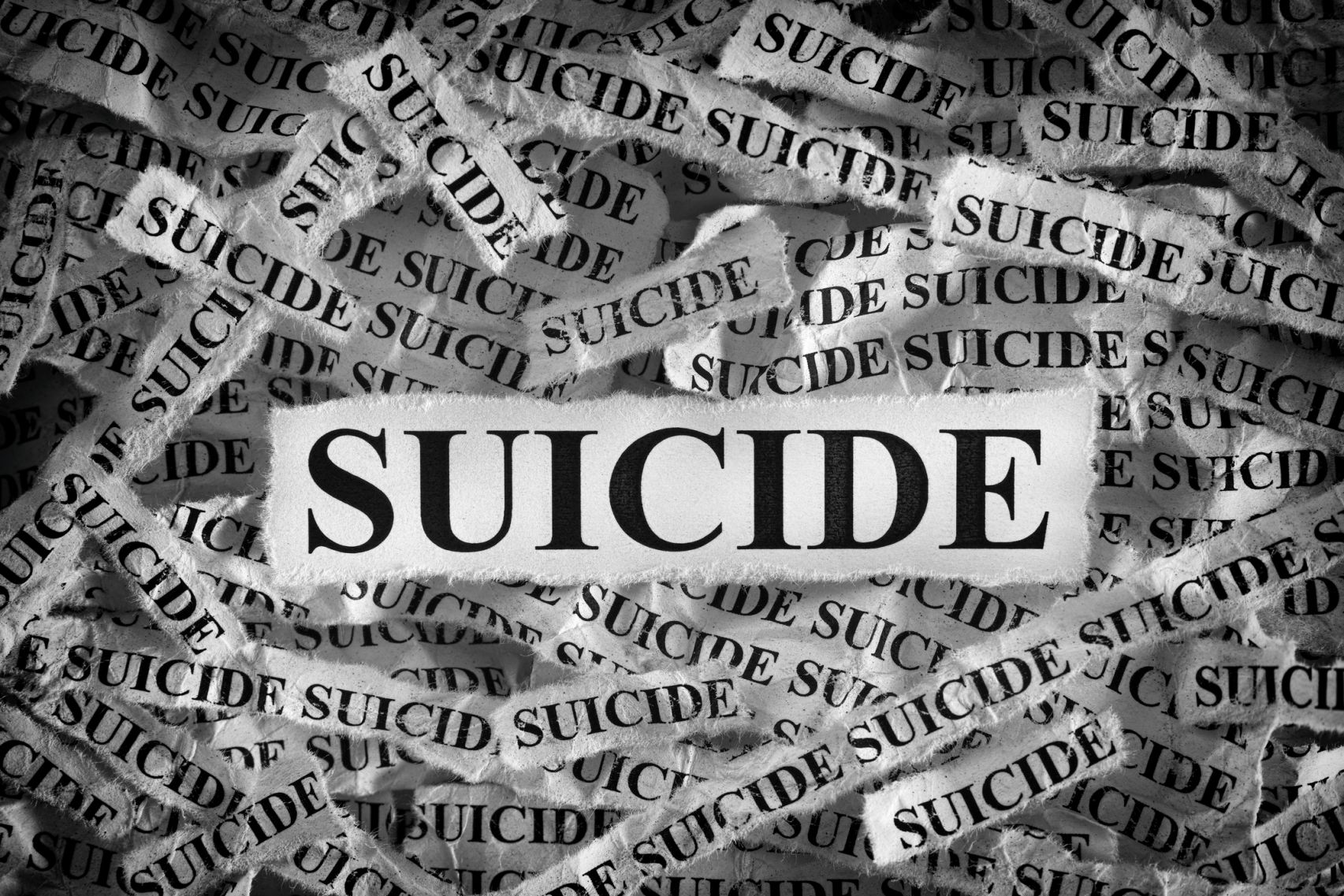Popular on Rezul
- Still Using Ice? FrostSkin Reinvents Hydration - 117
- Volarex Named Chartered Consultant of the Year at Business UK National Awards
- Mend Colorado Launches Revamped Sports Performance Training Page
- Ice Melts. Infrastructure Fails. What Happens to Clean Water?
- Cold. Clean. Anywhere. Meet FrostSkin
- Actor, Spokesperson Rio Rocket Featured in "Switch to AT&T" Campaign Showing How Customers Can BYOD and Keep Their Number
- Novestco Revolutionizes Deal Screening, Delivering Comprehensive Feasibility Analysis in Minutes
- The World's No.1 Superstar® Brings Disco Fever Back With New Global Single and Video "Disco Dancing"
- Nest Finders Property Management Named #1 in Jacksonville and Ranked #99 Nationwide
- Boston Industrial Solutions' Natron® 512N Series UV LED Ink Achieves BPA Certification, Advancing Safe and Sustainable Digital Printing
Similar on Rezul
- P-Wave Classics to publish Robert Bage's Hermsprong in three volumes, beginning 12 May
- Progressive Dental & The Closing Institute Partner with Zest Dental Solutions to Elevate Full-Arch Growth and Patient Outcomes
- CCHR: While Damaging Antipsychotics Win Approval, Proven Non-Drug Alternatives Remain Ignored
- Arcuri Group Announces Long‑Term Partnership with WakeMed Health & Hospitals to Deliver Situational Awareness and De‑escalation Training
- At 25, She Became One of the Youngest AAPI Female Founders to Win One of the World's Most Prestigious Design Awards for a Lamp That Makes You Smile
- Atlanta Tech Founder Seeks Clarity on Intellectual Property and Innovation Policy
- Triple-Digit Growth, Strategic N A S D A Q Uplist, Plus A Scalable Healthcare Rollout Model: Stock Symbol: CDIX
- Vesica Health Receives FDA Breakthrough Device Designation for AssureMDx
- Lineus Medical's SafeBreak® Vascular Added to Alliant GPO Contract
- Postmortem Pathology Expands Independent Autopsy Services in Kansas City
Dispelling Holiday Suicide Myth: CDC Data Shows Suicide Rates Lowest in December; International Survivors of Suicide Day Emphasizes Need for Action
Rezul News/10720662
The Centers for Disease Control (CDC) states that the holiday suicide myth supports misinformation about suicide and might actually hinder prevention efforts.
CLEARWATER, Fla. - Rezul -- As communities observe International Survivors of Suicide Day on November 22nd, the Citizens Commission on Human Rights (CCHR) Florida is taking the opportunity to address a persistent and harmful myth surrounding suicide during the holiday season. Contrary to widespread media narratives and public perception, CDC data definitively shows that suicide rates actually decrease in December and are among the lowest of the year—making the holiday suicide myth a dangerous piece of misinformation that may be undermining suicide prevention efforts.
Despite hundreds of billions of dollars spent annually on mental health interventions, suicide remains a significant public health crisis in the United States. More than 49,300 people died by suicide in 2023, with suicide ranking as the 11th leading cause of death nationally and the second leading cause of death for individuals aged 10-34. Additionally, an estimated 1.5 million Americans attempted suicide in 2023, and 5.3% of U.S. adults (approximately 13.5 million people) reported having serious thoughts of suicide in the past 12 months. Yet even as resources continue to increase—with excess costs arising from mental health inequities alone reaching an estimated $477.5 billion in 2024—effective suicide prevention remains elusive.
CCHR, a watchdog organization dedicated to protecting mental health human rights, believes that widespread misinformation surrounding suicide significantly clouds prevention efforts. One of the most persistent and damaging myths is that suicide attempts surge during the holiday season.
The Media's Role in Perpetuating False Narratives
The Annenberg Public Policy Center has tracked media reports on suicide since 2000 and found that during the 2023-2024 holiday season, 58% of articles linking the holidays and suicide perpetuated the holiday suicide myth, while only 42% debunked it. This pattern of media coverage has ensured that the misconception remains deeply embedded in public consciousness, creating unwarranted anxiety during the holiday season while potentially diverting attention and resources away from periods of actual higher suicide risk.
More on Rezul News
In a nationally representative survey conducted by the Annenberg Public Policy Center in 2023, four out of five adults incorrectly selected December as the "time of year in which the largest number of suicides occur"—even though the other months provided as choices typically have much higher suicide rates.
What the Data Actually Shows
The CDC has emphatically stated that the holiday suicide myth supports misinformation and might actually hinder prevention efforts. According to analysis of CDC data from 2022 and 2023, December consistently had the lowest average daily suicide rate of the year, ranking 12th in suicide rates among all months. November ranked 11th, and January ranked 10th. In stark contrast, the highest suicide rates occurred in the spring and summer months, with June, July, and August ranking 1st, 2nd, and 3rd respectively. This seasonal pattern has remained consistent over several decades and is observed in the southern hemisphere as well, where suicide rates peak during their summer months (December-February), further confirming that suicide rates are primarily influenced by seasonal factors rather than holiday-specific stressors.
Additional Concerns About Mental Health Treatment
Beyond the perpetuation of false information, CCHR has raised concerns about the growing reliance on antidepressant medications. According to new data released by the CDC's National Center for Health Statistics in 2025, more than 1 in 10 U.S. adults took prescription medication for depression in 2023, with women (15.3%) more than twice as likely to take these medications as men (7.4%). Additionally, the prevalence of depression in U.S. adolescents and adults increased 60% in the past decade.
Research published in Pediatrics in 2024 revealed that antidepressant dispensing to adolescents and young adults increased by 66.3% from January 2016 to December 2022, with the rate of increase accelerating by 63.5% after the COVID-19 outbreak in March 2020. Notably, this dramatic expansion in antidepressant usage has occurred despite documented evidence that side effects from these medications can include suicidal thoughts and feelings.
More on Rezul News
Furthermore, research has challenged the efficacy of suicide risk assessments. In a 2017 Scientific American article, psychiatrists Declan Murray and Patrick Devitt reported that 40 years of research on suicide risk assessment determined there is "no statistical method to identify patients at high-risk of suicide in a way that would improve treatment."
International Survivors of Suicide Day and a Call for Awareness
As November 22nd approaches, marking International Survivors of Suicide Day, the focus shifts to honoring those who have lost loved ones to suicide and supporting survivors in their grief and recovery. This observance underscores the importance of accurate, evidence-based information about suicide prevention and mental health treatment options that do not rely on potentially dangerous psychiatric drugs.
CCHR Florida invites individuals seeking accurate information about suicide and psychiatric drug side effects to visit the CCHR Center located in downtown Clearwater. Staff members are available to provide resources, education, and support for those navigating mental health concerns or seeking to understand treatment alternatives. Visitors can learn about the documented risks of psychiatric drugs, explore options for reporting adverse drug reactions, and access information on evidence-based mental health approaches. For more information, to report abuse, or to visit the CCHR Center in downtown Clearwater, please call 1-800-782-2878 or visit www.cchrflorida.org.
About CCHR: Initially established by the Church of Scientology and renowned psychiatrist Dr. Thomas Szasz in 1969, CCHR's mission is to eradicate abuses committed under the guise of mental health and enact patient and consumer protections. L. Ron Hubbard, founder of Scientology, first brought psychiatric imprisonment to wide public notice: "Thousands and thousands are seized without process of law, every week, over the 'free world' tortured, castrated, killed. All in the name of 'mental health,'" he wrote in March 1969.
Despite hundreds of billions of dollars spent annually on mental health interventions, suicide remains a significant public health crisis in the United States. More than 49,300 people died by suicide in 2023, with suicide ranking as the 11th leading cause of death nationally and the second leading cause of death for individuals aged 10-34. Additionally, an estimated 1.5 million Americans attempted suicide in 2023, and 5.3% of U.S. adults (approximately 13.5 million people) reported having serious thoughts of suicide in the past 12 months. Yet even as resources continue to increase—with excess costs arising from mental health inequities alone reaching an estimated $477.5 billion in 2024—effective suicide prevention remains elusive.
CCHR, a watchdog organization dedicated to protecting mental health human rights, believes that widespread misinformation surrounding suicide significantly clouds prevention efforts. One of the most persistent and damaging myths is that suicide attempts surge during the holiday season.
The Media's Role in Perpetuating False Narratives
The Annenberg Public Policy Center has tracked media reports on suicide since 2000 and found that during the 2023-2024 holiday season, 58% of articles linking the holidays and suicide perpetuated the holiday suicide myth, while only 42% debunked it. This pattern of media coverage has ensured that the misconception remains deeply embedded in public consciousness, creating unwarranted anxiety during the holiday season while potentially diverting attention and resources away from periods of actual higher suicide risk.
More on Rezul News
- At 25, She Became One of the Youngest AAPI Female Founders to Win One of the World's Most Prestigious Design Awards for a Lamp That Makes You Smile
- Juego Studios Extends Full-Cycle Game Development & Outsourcing Capabilities to the UAE Market
- VENUS Goes Live on CATEX Exchange As UK Financial Ltd Activates The Premier Division Of The Maya Meme's League
- Specializing in Concrete Cleaning & Sealing, Titan Pressure Washing of Stuart Florida Showcases Their Process in Video Demonstration
- Atlanta Tech Founder Seeks Clarity on Intellectual Property and Innovation Policy
In a nationally representative survey conducted by the Annenberg Public Policy Center in 2023, four out of five adults incorrectly selected December as the "time of year in which the largest number of suicides occur"—even though the other months provided as choices typically have much higher suicide rates.
What the Data Actually Shows
The CDC has emphatically stated that the holiday suicide myth supports misinformation and might actually hinder prevention efforts. According to analysis of CDC data from 2022 and 2023, December consistently had the lowest average daily suicide rate of the year, ranking 12th in suicide rates among all months. November ranked 11th, and January ranked 10th. In stark contrast, the highest suicide rates occurred in the spring and summer months, with June, July, and August ranking 1st, 2nd, and 3rd respectively. This seasonal pattern has remained consistent over several decades and is observed in the southern hemisphere as well, where suicide rates peak during their summer months (December-February), further confirming that suicide rates are primarily influenced by seasonal factors rather than holiday-specific stressors.
Additional Concerns About Mental Health Treatment
Beyond the perpetuation of false information, CCHR has raised concerns about the growing reliance on antidepressant medications. According to new data released by the CDC's National Center for Health Statistics in 2025, more than 1 in 10 U.S. adults took prescription medication for depression in 2023, with women (15.3%) more than twice as likely to take these medications as men (7.4%). Additionally, the prevalence of depression in U.S. adolescents and adults increased 60% in the past decade.
Research published in Pediatrics in 2024 revealed that antidepressant dispensing to adolescents and young adults increased by 66.3% from January 2016 to December 2022, with the rate of increase accelerating by 63.5% after the COVID-19 outbreak in March 2020. Notably, this dramatic expansion in antidepressant usage has occurred despite documented evidence that side effects from these medications can include suicidal thoughts and feelings.
More on Rezul News
- Majestic CA Fire & Disaster Safe Haven/VIP Ranch Retreat w/ Extraordinary Water Resources
- Purple Heart Recipient Honored by Hall of Fame Son In Viral Tribute Sparking National Conversation on Service Fatherhood, Healing and Legacy
- JiT Home Buyers Strengthens Multi-State Presence as Demand for Flexible Home Selling Solutions Grows
- Amicly Launches as a Safety-First Social App Designed to Help People Build Real, Meaningful Friendships
- Primeindexer Google indexing platform launched by SEO Danmark APS
Furthermore, research has challenged the efficacy of suicide risk assessments. In a 2017 Scientific American article, psychiatrists Declan Murray and Patrick Devitt reported that 40 years of research on suicide risk assessment determined there is "no statistical method to identify patients at high-risk of suicide in a way that would improve treatment."
International Survivors of Suicide Day and a Call for Awareness
As November 22nd approaches, marking International Survivors of Suicide Day, the focus shifts to honoring those who have lost loved ones to suicide and supporting survivors in their grief and recovery. This observance underscores the importance of accurate, evidence-based information about suicide prevention and mental health treatment options that do not rely on potentially dangerous psychiatric drugs.
CCHR Florida invites individuals seeking accurate information about suicide and psychiatric drug side effects to visit the CCHR Center located in downtown Clearwater. Staff members are available to provide resources, education, and support for those navigating mental health concerns or seeking to understand treatment alternatives. Visitors can learn about the documented risks of psychiatric drugs, explore options for reporting adverse drug reactions, and access information on evidence-based mental health approaches. For more information, to report abuse, or to visit the CCHR Center in downtown Clearwater, please call 1-800-782-2878 or visit www.cchrflorida.org.
About CCHR: Initially established by the Church of Scientology and renowned psychiatrist Dr. Thomas Szasz in 1969, CCHR's mission is to eradicate abuses committed under the guise of mental health and enact patient and consumer protections. L. Ron Hubbard, founder of Scientology, first brought psychiatric imprisonment to wide public notice: "Thousands and thousands are seized without process of law, every week, over the 'free world' tortured, castrated, killed. All in the name of 'mental health,'" he wrote in March 1969.
Source: Citizens Commission on Human Rights of Florida
0 Comments
Latest on Rezul News
- 59-Acre Germantown Horse Farm Sells for $1.3 Million
- Best Book Publishing Company for Aspiring Authors
- Dr. Nadene Rose Releases Moving Memoir on Faith, Grief, and Divine Presence
- Gigasoft Solves AI's Biggest Charting Code Problem: Hallucinated Property Names
- Goodwill Industries of Northwest Texas Signs Lease at Lawndale Shopping Center in Amarillo, Texas
- ASTI Ignites the Space Economy: Powering SpaceX's NOVI AI Pathfinder with Breakthrough Solar Technology: Ascent Solar Technologies (N A S D A Q: ASTI)
- Hiring has reached a "Digital Stalemate"—Now, an ex-Google recruiter is giving candidates the answers
- Colliers facilitates sale of industrial flex property at 9191 Gulf Freeway in Houston
- JiT Home Buyers Explains What Homeowners Nationwide Should Know Before Selling a House As-Is
- 2026 Pre-Season Testing Confirms a Two-Tier Grid as Energy Management Defines Formula 1's New Era
- Platinum Car Audio LLC Focuses on Customer-Driven Vehicle Audio and Electronics Solutions
- Postmortem Pathology Expands Independent Autopsy Services in Kansas City
- Postmortem Pathology Expands Independent Autopsy Services Across Colorado
- $38 Million in U.S. Government Contract Awards Secured Through Strategic Partner. Establishing Multi-Year Defense Revenue Platform Through 2032: $BLIS
- Mecpow M1: A Safe & Affordable Laser Engraver Built for Home DIY Beginners
- CrashStory.com Launches First Colorado Crash Data Platform Built for Victims, Not Lawyers
- Inkdnylon Earns BBB Accreditation for Verified Business Integrity
- Josh Stout "The Western Project"
- Neuromorph Systems Launches LeadRapid "Inbound-First" Investor Suite, Replacing Dying "Cold Call"
- Open House Momentum Builds at Heritage at South Brunswick




